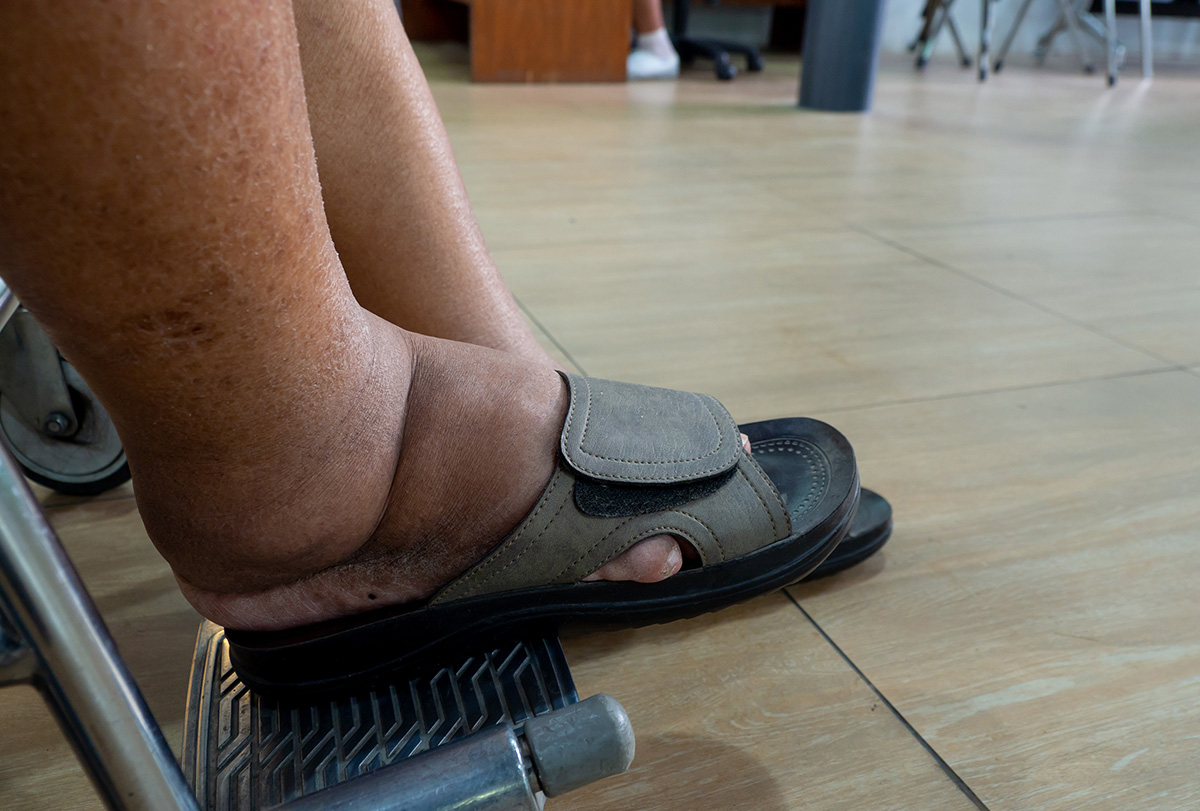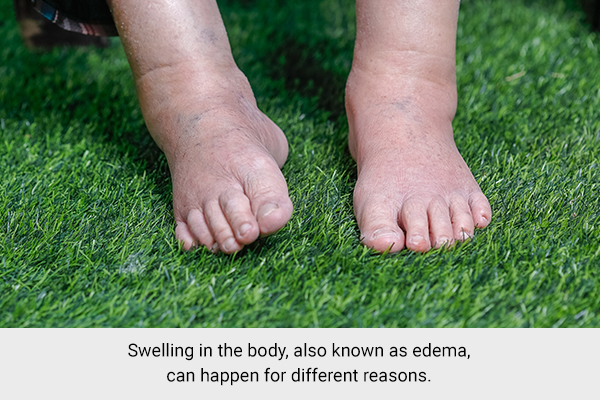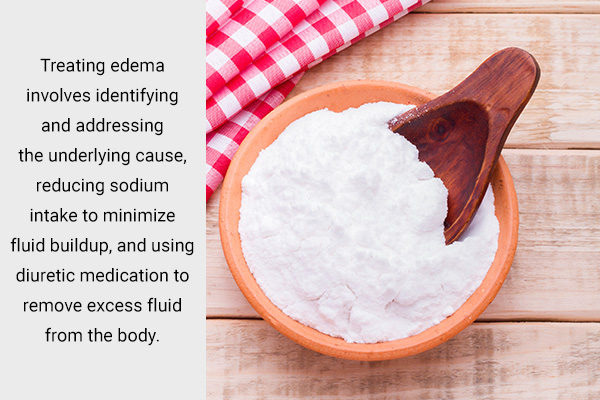In this article:
Sometimes, when you wake up in the morning, you may feel bloated or your favorite shoes don’t fit well because your feet are swollen. This swelling is clinically known as edema and is commonly known as water or fluid retention.

Edema is defined as swelling due to an increase of interstitial fluid volume (the fluid between your cells) of tissues or an organ. In simple words, it is the buildup of fluid in body tissues.
Numerous medical ailments have edema as a sign. Therefore, it is often a way to diagnose health issues.
Based on what is causing your edema, you might be able to aid in alleviating it by making modifications to your diet or by not sitting for extended periods of time during the day. If the edema is a result of other health conditions, physicians will create a management plan for you. (1)
Find out more about edema, who is at risk, what causes it, and how to know if it’s serious.
What Causes Water Retention?

Swelling in the body, also known as edema, can happen for different reasons. It’s important to talk to a doctor to find out what’s causing it and get the right treatment.
Sometimes, edema can be mild and can go away on its own, but other times, it can be a sign of a serious problem that requires medical attention. It can also be caused by certain medications or allergies. (2)
Some common causes include heart problems, liver disease, kidney disease, pregnancy, and certain medical conditions.
In some cases, it can also be caused by burns, insect bites, allergic reactions, or hormonal imbalances. These factors can make it difficult for the body to regulate the amount of fluid in the tissues, resulting in swelling and discomfort. (3)
Signs and Symptoms of Water Retention
Typical early signs and symptoms of edema include the following: (2)
- The arms or legs feel heavy.
- The arms or legs look swollen.
- Upon pressing the swollen area, a dent is left.
- Clothing or jewelry feels tight.
- The skin around the swollen area feels tight or warm.
- The joints involved are hard to move.
Medicines that can cause edema as a side effect
Many drugs can also lead to edema or fluid retention as a side effect. These drugs include:
- Thiazolidinediones
- Glucocorticoids
- Testosterone
- Estrogen
- Progesterone
- Calcium channel blockers
- Antidepressants
- Verapamil
- Diltiazem
- Anti-Parkinson’s disease drugs
- Proton pump inhibitors
- Nonsteroidal anti-inflammatory drugs (NSAIDs)
Medical Management of Water Retention

Treating edema involves identifying and addressing the underlying cause, reducing sodium intake to minimize fluid buildup, and often using diuretic medication such as furosemide, bumetanide, amiloride, or spironolactone to help remove the excess fluid from the body.
However, not everyone with edema needs medication. Some may benefit from simply reducing sodium intake and elevating their legs above heart level.
If medication is needed, the type and amount will depend on the individual’s condition, and the medication works by affecting different parts of the kidneys. It’s important to have a proper diagnosis and understanding of the medication being used. (4)
Diagnosing Water Retention
Doctors usually perform certain tests to determine the cause of generalized edema, such as swelling throughout the body. These tests include CBC, electrolyte levels, kidney function tests, liver function tests, and urine analysis to check for protein and blood in the urine. (3)
Additional tests may be needed based on the suspected cause of edema. For swelling in their legs or feet, doctors may use ultrasonography to check for blockages in the veins.
Is Edema in Pregnancy Serious?
It’s common for women to experience edema while pregnant; it’s usually not a big concern. However, it could mean something more serious if their blood pressure is also high. It’s important to talk to a doctor if there are any concerns. (2)
When to See a Doctor
It’s important to consult a doctor before trying to treat water retention yourself because there can be different medical reasons for it. Certain herbs and remedies can also make your condition worse or interact with the medications you are taking.
You should see a doctor urgently if you are experiencing:
- Significant pain
- Shortness of breath
- A history of heart problems or abnormal heart exam results
- Coughing up blood
- Difficulty breathing
- Enlarged liver
- Yellowing of the skin
- Abdominal swelling
- Enlarged spleen
- Vomiting blood
- Swelling in only one leg with tenderness
Final Word
Water retention is a familiar health issue to many and can stem from numerous factors, including diet, hormonal changes in menstruation or pregnancy, and even genetics.
You can aid in relieving water retention by bringing in various lifestyle modifications. You can lead a wholesome life even with water retention if you manage it well. If water retention continues, talk to your doctor, who will prescribe the required medications.
 Continue Reading7 Home Remedies for Water Retention and How to Use Them
Continue Reading7 Home Remedies for Water Retention and How to Use Them
- Was this article helpful?
- YES, THANKS!NOT REALLY


